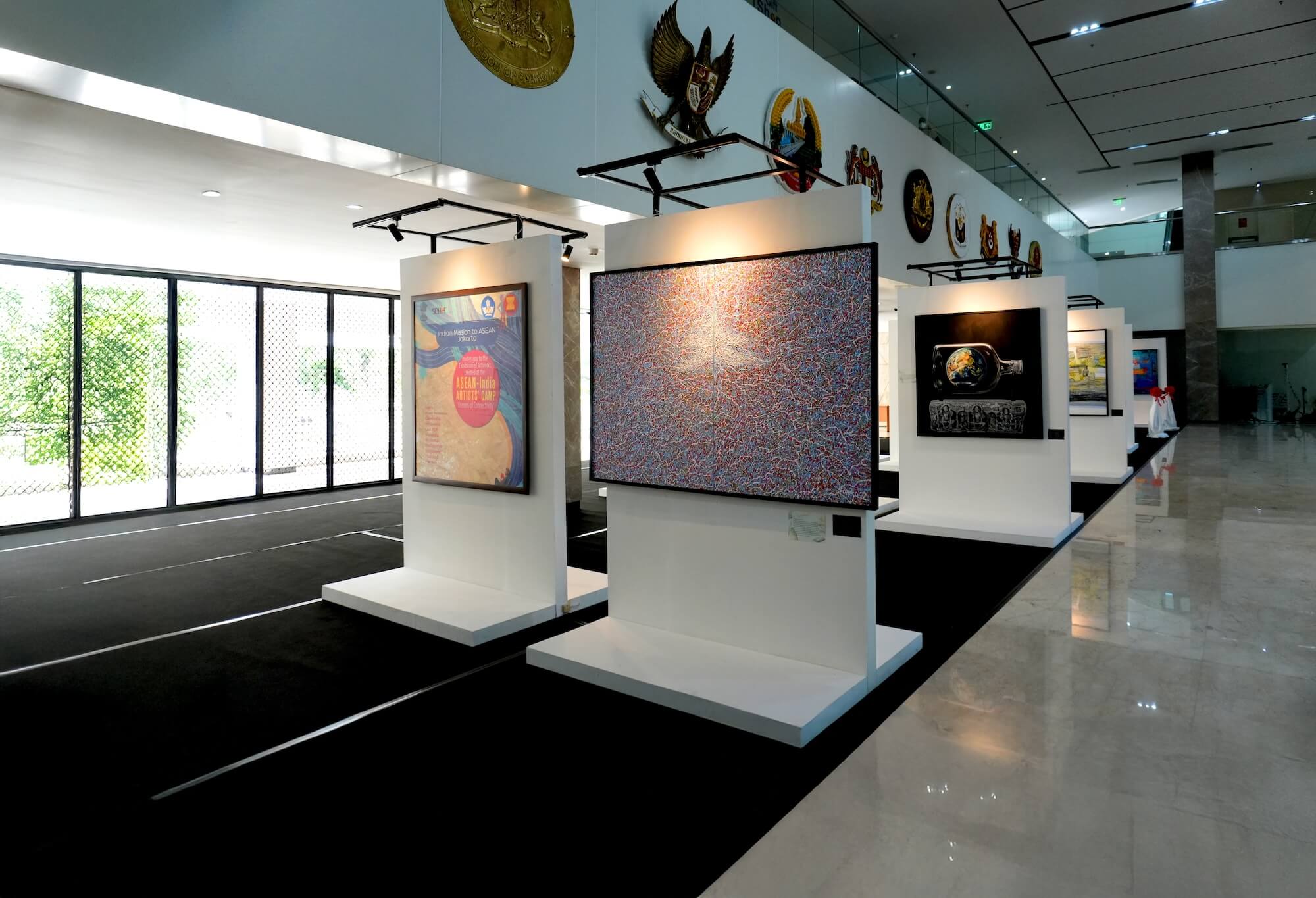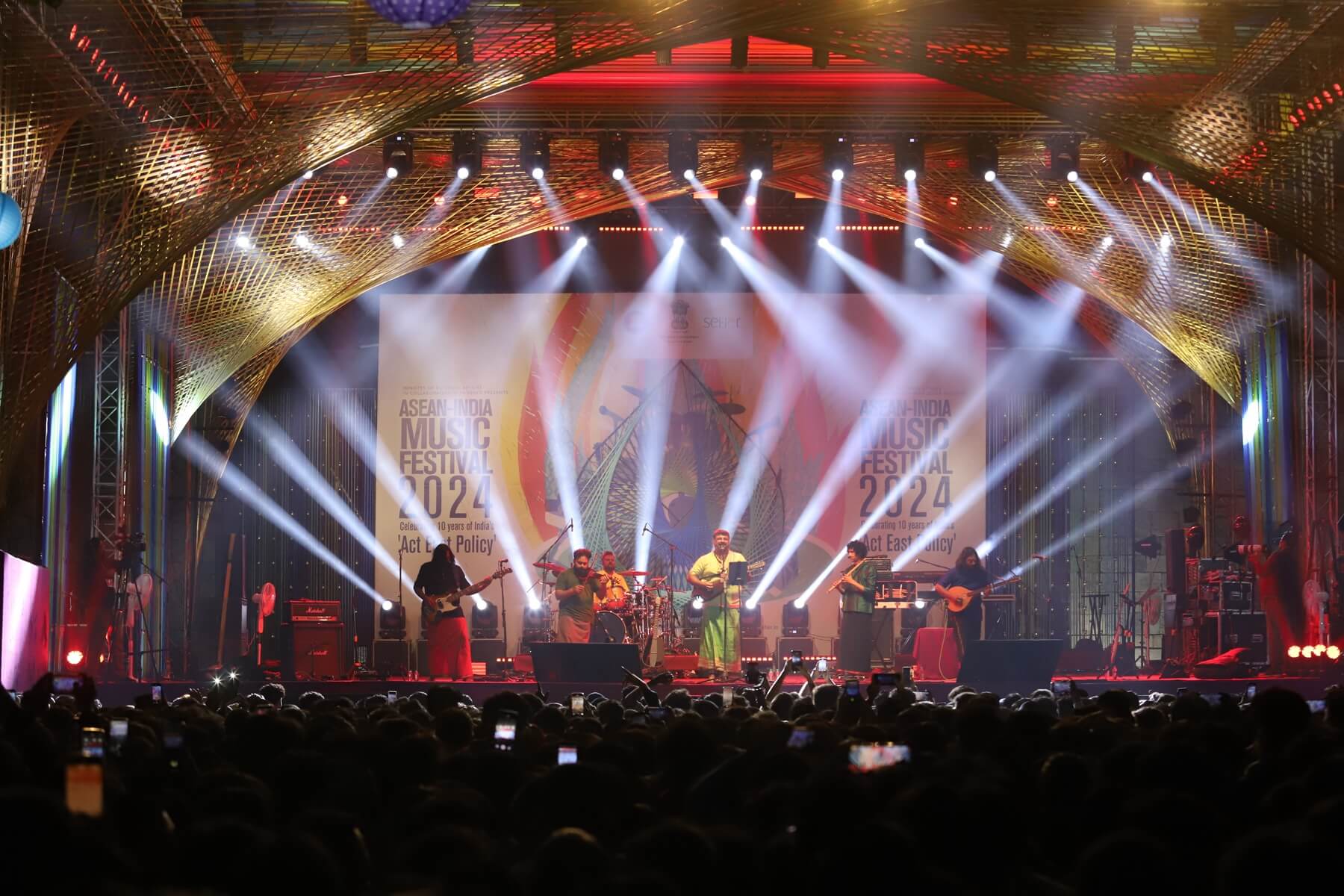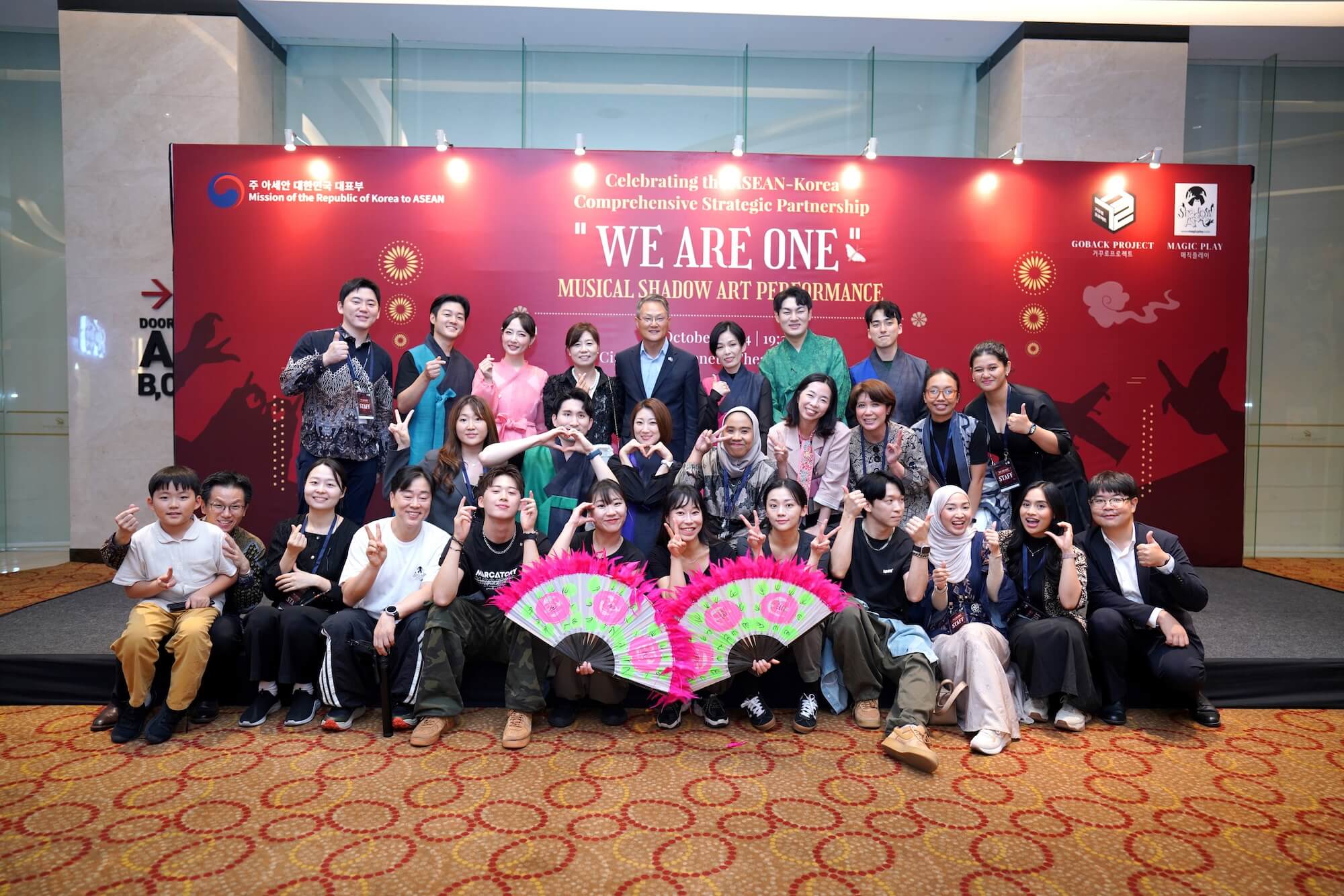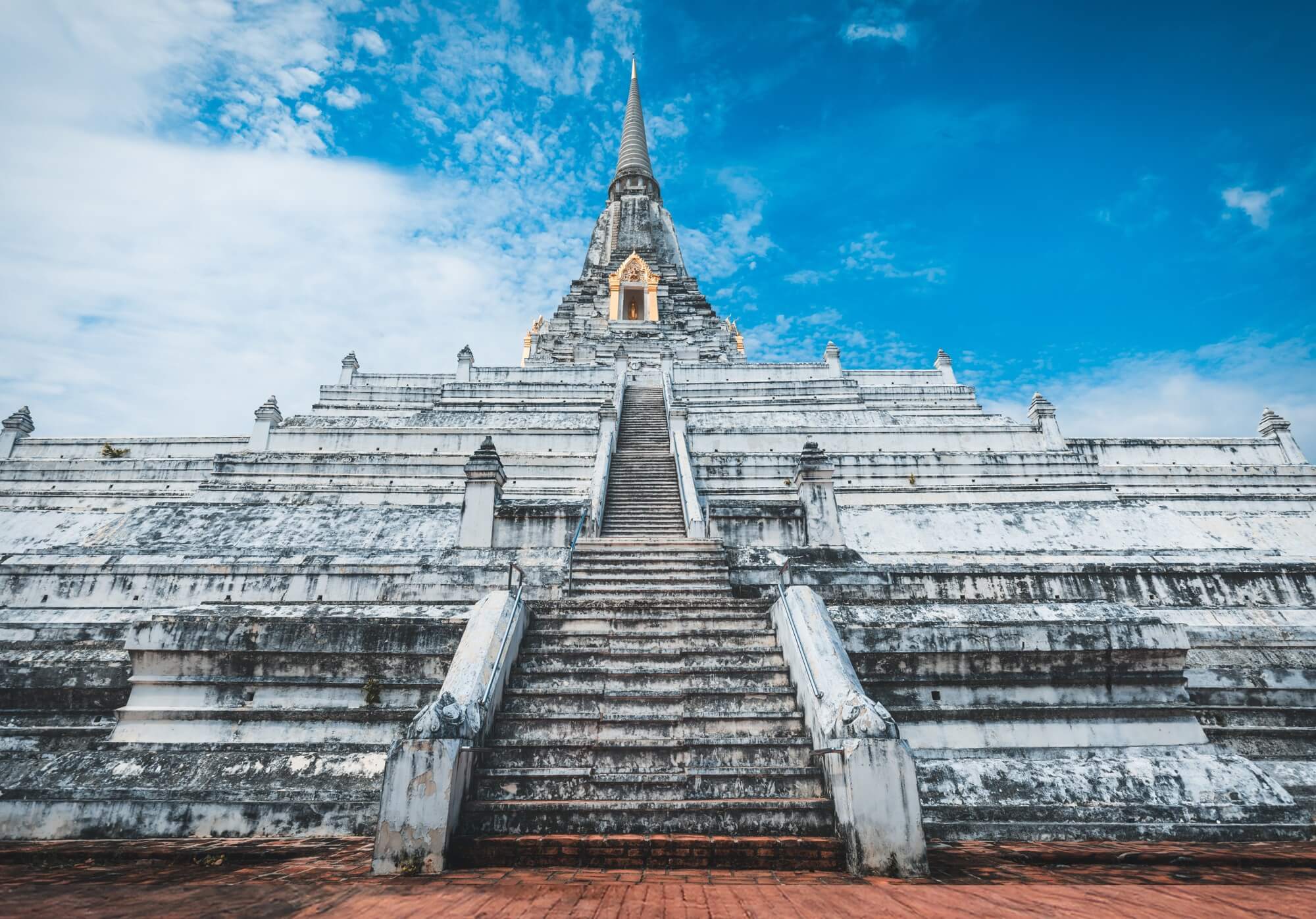



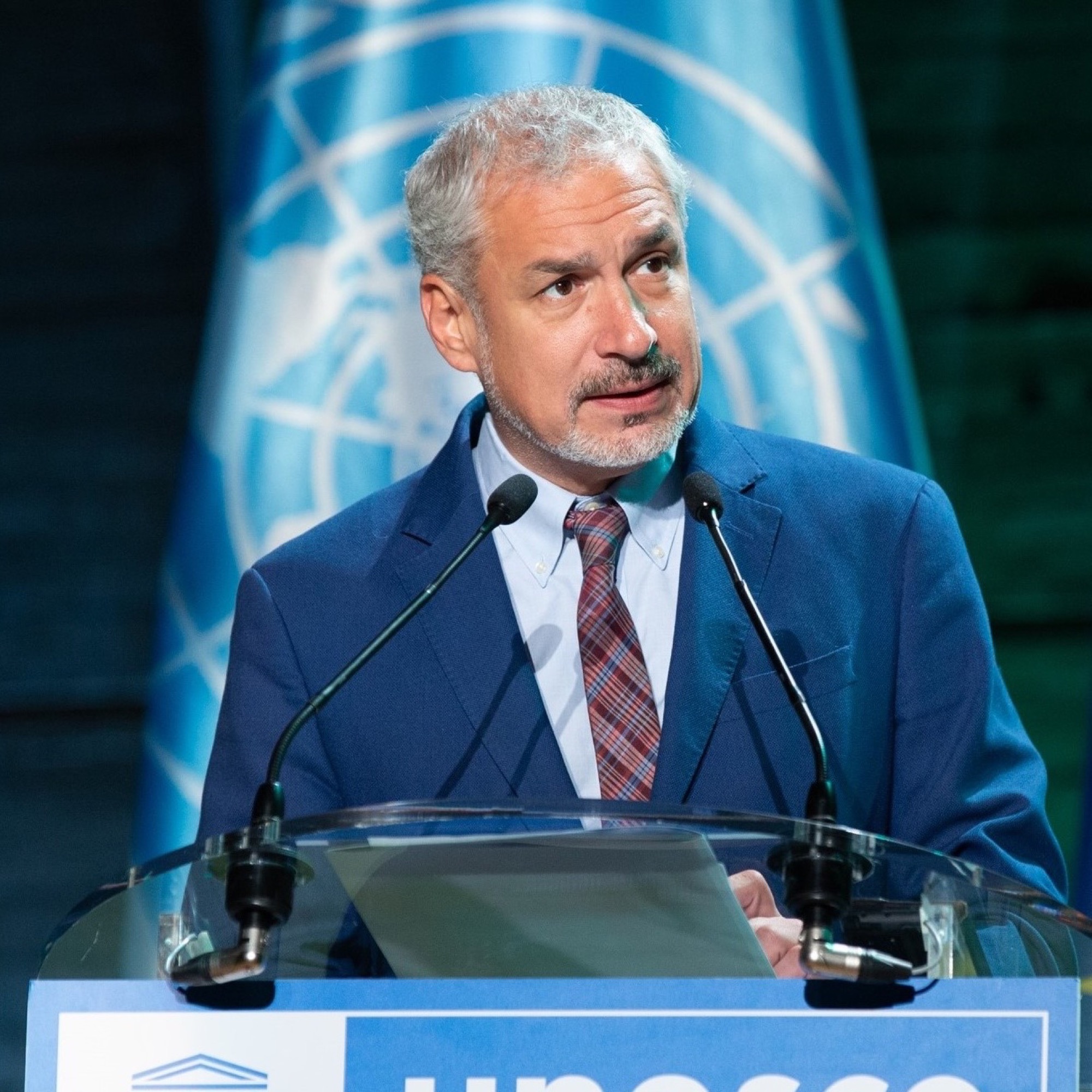
An upward trajectory on culture’s transformative impact for development
In the face of complex, multifaceted, and interconnected global challenges, the transformational role of culture for sustainable development has gained particular traction. National and local governments worldwide are increasingly harnessing culture to achieve sustainable development objectives across the public policy spectrum, from education, job creation and social inclusion to climate action, peacebuilding and urban sustainability, among other targets. The inclusion of culture has proven critical to ensuring context-relevant, rights-based, and inclusive sustainable development models, encompassing the intrinsic diversity of societies and supporting the localisation of the Sustainable Development Goals (SDG).
This upward momentum on culture and sustainable development was strongly expressed by UNESCO Member States at the UNESCO World Conference on Cultural Policies and Sustainable Development– MONDIACULT in Mexico in September 2022. Its Ministerial Declaration acknowledged culture’s transformative role across all aspects of sustainable development and positioned culture as a global public good, reinvigorating global solidarity through multilateralism and explicitly calling for culture’s integration as a specific goal in its own right in the development agenda beyond 2030. The Declaration also underlined strategic areas of policy engagement for the future, from harnessing culture for climate action and conflict mitigation and supporting the promotion of cultural rights to enabling the adaptation of culture to the digital transformation or sustaining the creative economy, among others.
The declaration also called for the establishment, from 2025 onwards, of a World Forum on Cultural Policies, to be organised by UNESCO every four years. The debates of the forum will be informed by a World Report on Cultural Policies which the organisation will produce.
Beyond MONDIACULT 2022, culture’s transformative impact on societies as a whole is now widely recognised, not only within the United Nations system but also in major global policy fora and at the regional level. Culture-related commitments have been explicitly featured in political declarations endorsed at heads of State or ministerial levels throughout 2023 by the G20, the G77+China, or the BRICS Summit, among others. Likewise, ASEAN, alongside the African Union, the Pacific Community (SPC), Ibero-American General Secretariat (SEGIB), and Coordinación Educativa y Cultural Centroamericana–El Sistema de la Integración Centroamericana (CECC-SICA), have stepped up their policy commitments to integrate culture as a critical enabler of inclusive, sustainable development. UNESCO welcomes ASEAN’s longstanding commitment towards fostering countries’ engagement with the culture sector and sustaining intercultural dialogue.
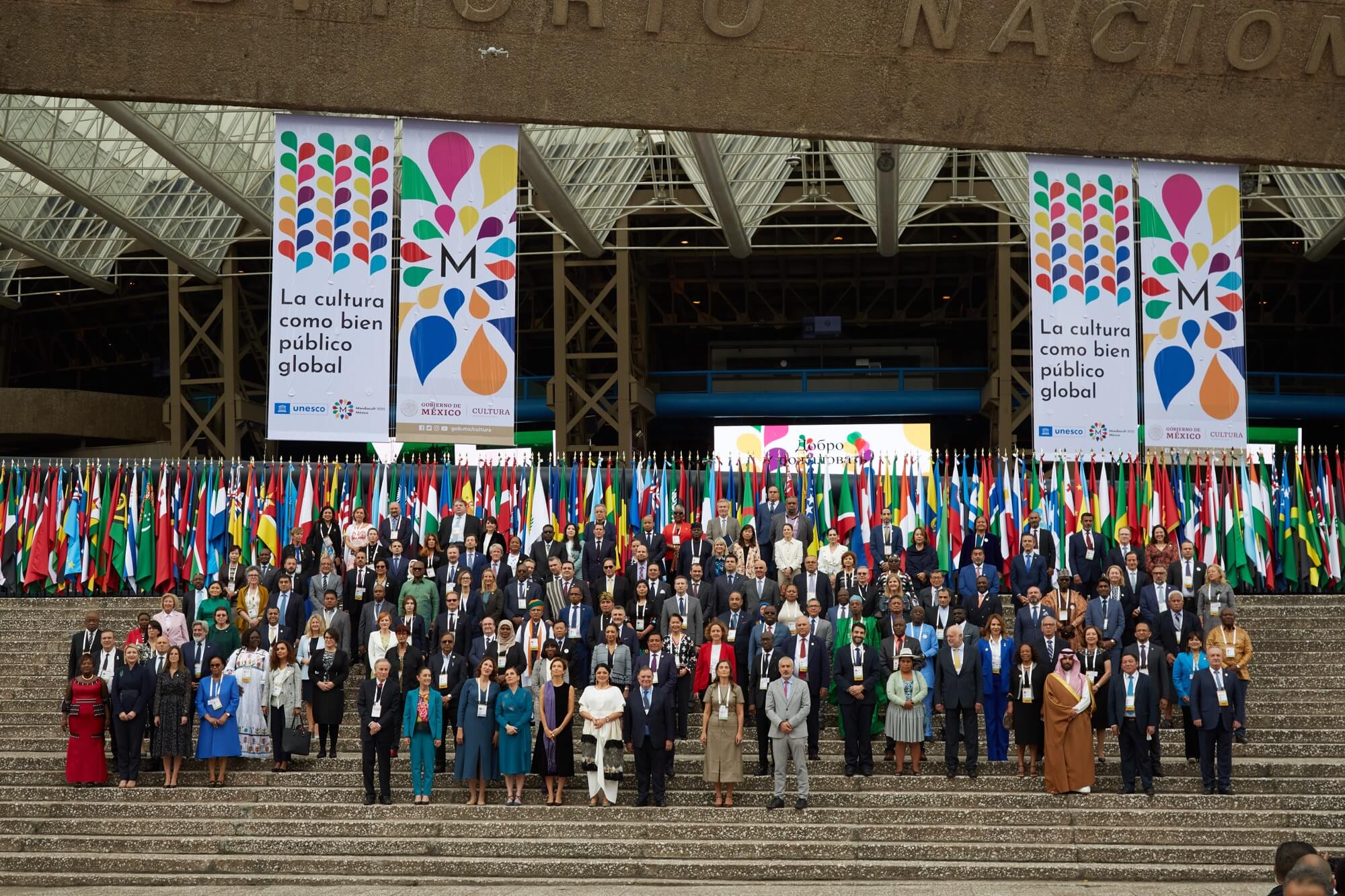
A strong policy engagement on culture and sustainable development in ASEAN countries
ASEAN Member States are particularly committed to strengthening their cultural policy frameworks and leveraging culture for sustainable development prospects. Across the sub-region, safeguarding tangible and intangible heritage as well indigenous languages and cultures are core areas of focus, complemented by a robust commitment to the ratification and implementation of UNESCO Culture Conventions and Recommendations and growing interest in the creative economy, the development of museums, and the fight against illicit trafficking of cultural property. In this context, ASEAN Member States’ support for the creation of a virtual museum of stolen cultural property by 2025 is expected in order to reinforce the research of the provenance of pieces.
The active participation of ASEAN countries in MONDIACULT 2022 allowed UNESCO to better capture countries’ priorities and trends. Across the sub-region, the transformative role of culture for collective and individual well-being is increasingly acknowledged and enshrined as a pillar of national development plans in a growing number of countries. Harnessing culture for social cohesion and dialogue, exploring sustainable patterns of cultural tourism, or enhancing the role of culture and traditional knowledge to support climate action and disaster risk reduction are receiving growing interest, opening opportunities to further anchor culture in sustainable development planning.
Enhancing the role of culture for social inclusion, dialogue and peace-building is also reported as a major priority across the region, one which is directly supported by ASEAN, notably in relation to harnessing the multicultural features of the region or supporting nation-building or post-conflict reconciliation efforts. The safeguarding of culture and the promotion of cultural rights are outlined as privileged channels to tackle social and economic inequalities and to foster the inclusion of vulnerable groups, notably indigenous peoples or persons with disabilities.
Addressing the digital divide and fostering access to culture for all was equally underlined by ASEAN countries as a critical target, with a view to ensuring the preservation of cultural diversity and multiple cultural identities, while also harnessing the benefits of the digital transformation for the cultural sector. Strengthening intellectual property frameworks, expanding the socio-economic rights of artists, and further integrating culture in national digital transformation policies were notably highlighted as crucial.
Finally, countries of the sub-region are increasingly engaged in expanding culture and arts education and integrating culture in curricula in formal, non-formal and informal education— including education for sustainable development—thus shaping integrated strategies and policies that anchor the cultural dimension in and across educational systems. The sub-region is particularly engaged in leveraging cultural diversity, while also supporting youth employment in the cultural and creative industries. In the run up to the UNESCO World Conference on Culture and Arts Education (Abu Dhabi, United Arab Emirates, 13-15 February 2024), this commitment will be particularly critical, notably as regards the implementation of the new UNESCO Framework for Culture and Arts Education which is to be adopted by Ministers of Education and Culture at the Conference, whereby the commitment of ASEAN and its Member States will be instrumental.

Anchoring culture in the post-2030 agenda: Towards and beyond the Summit of the Future
The absence of a sustainable development goal dedicated to culture within the 2030 Agenda has led to significant hurdles in SDG implementation and localisation. Culture was underlined as a major implementation gap to be addressed in the UN Secretary-General’s report, Progress towards the Sustainable Development Goals: Rescue Plan for People and Planet, stressing that the cultural capital in its rich diversity, as enshrined in the cultural resources of each country, serves as a source of knowledge, values and communication, as a contributor to environmental sustainability and as a generator of economic activity and jobs, as well as a resource for intercultural dialogue and understanding which are crucial inroads to strengthening social cohesion and sustaining peace.
Greater inclusion of culture’s central role in advancing sustainable development has thus become critical to effectively achieve the objectives set by the UN Sustainable Development Agenda and to shape the international development agenda post-2030. In that context, UNESCO is building a trajectory towards the inclusion of culture in the Pact for the Future as the main Outcome Document of the Summit of the Future (New York, USA, 22-23 September 2024), which will shape the foundations of the post-2030 agenda. In alignment with the UN Secretary General’s Our Common Agenda, culture’s inclusion in the post-2030 Agenda will be crucial to forge context-relevant, inclusive, and people-centred sustainable development models, building on the UN pillars of human rights and international peace and security.
The rich diversity and multifaceted experience in ASEAN countries and ASEAN convening power will be critical to inform and support such global advocacy on culture as a standalone development goal, particularly as part of the Member State-led negotiations that are foreseen to unfold from January 2024 onward. UNESCO stands ready to support ASEAN and its Member States moving forward with a view to further anchor culture at the heart of their sustainable development strategies and policies.
The views and opinions expressed in this article are solely those of the author and do not reflect the official policy or position of ASEAN.




